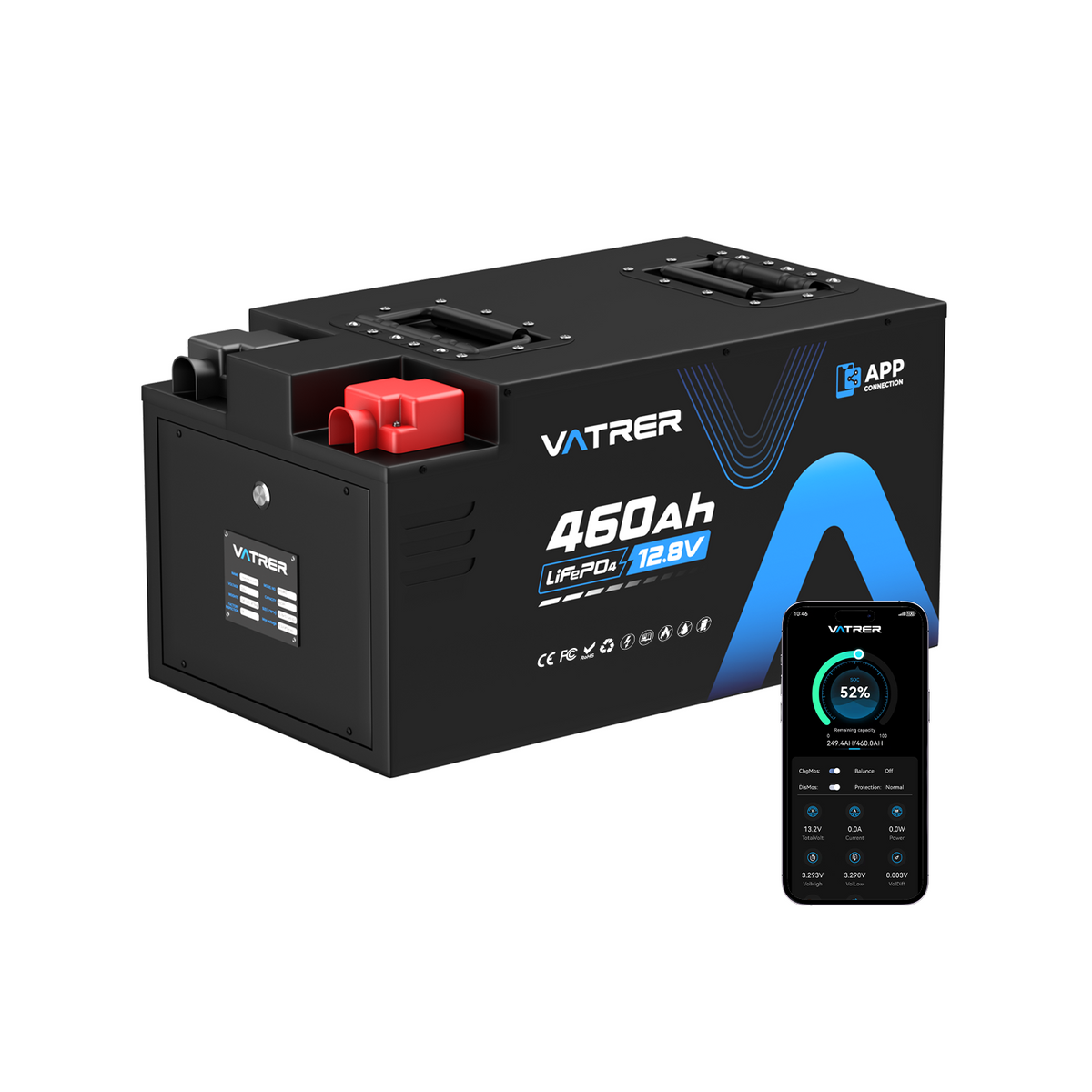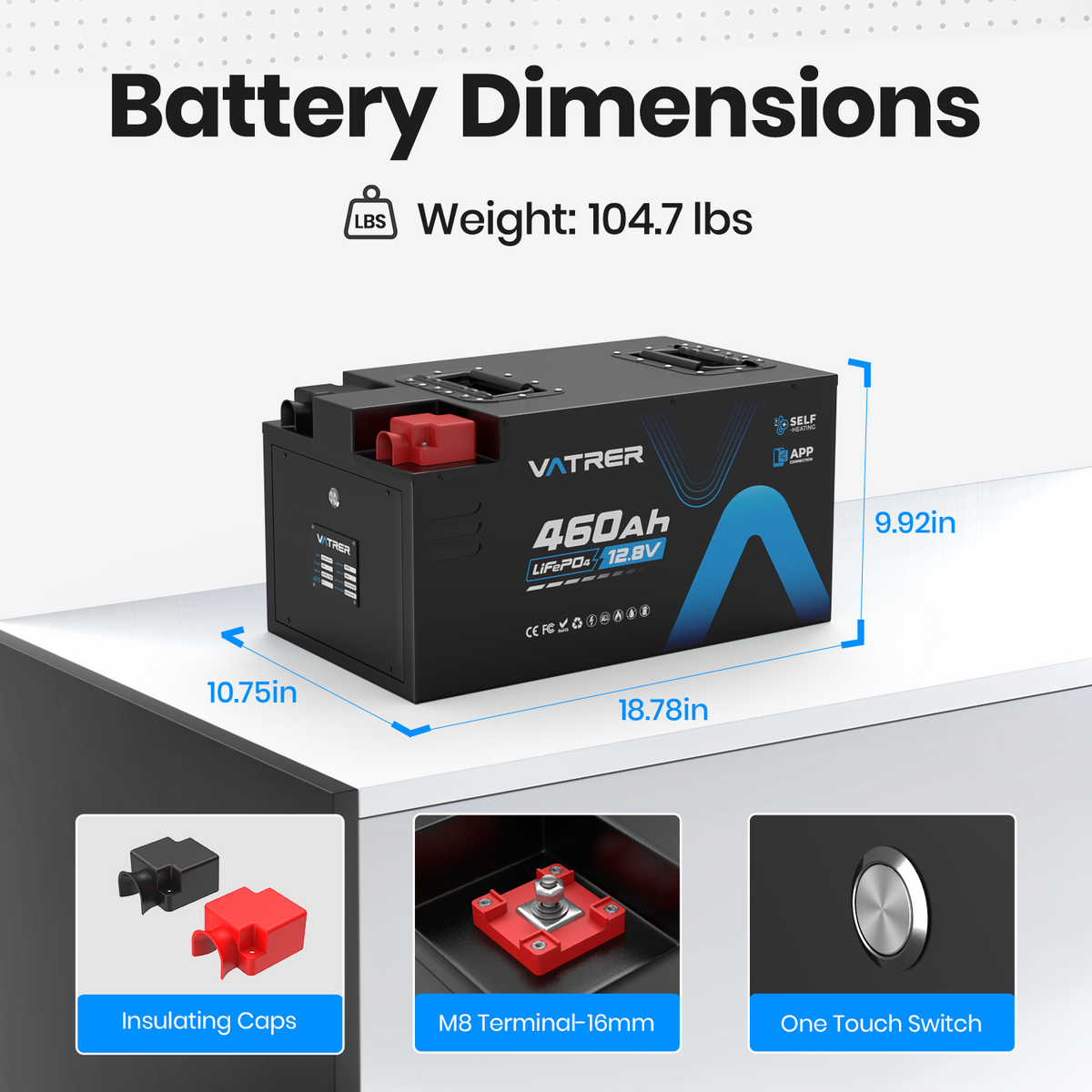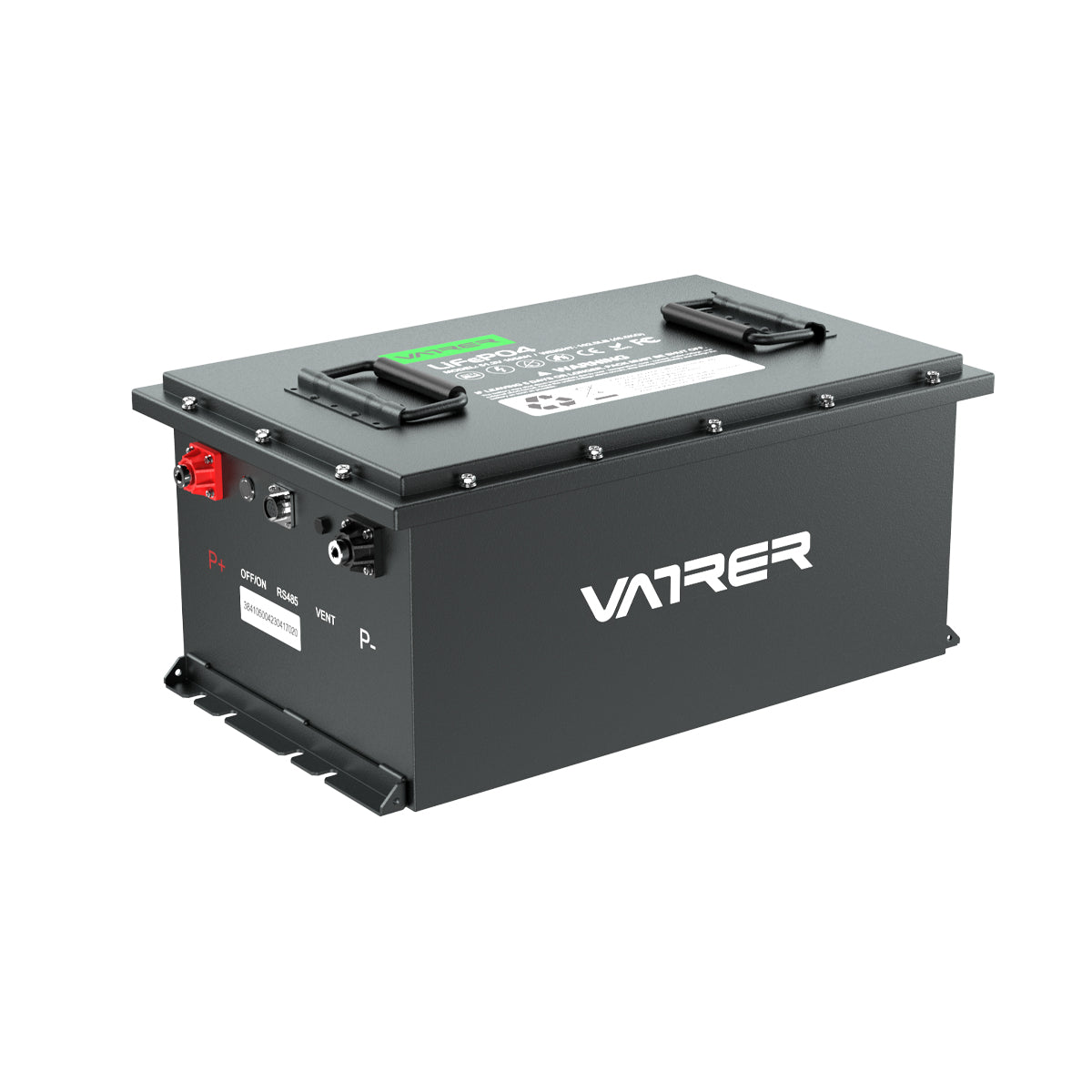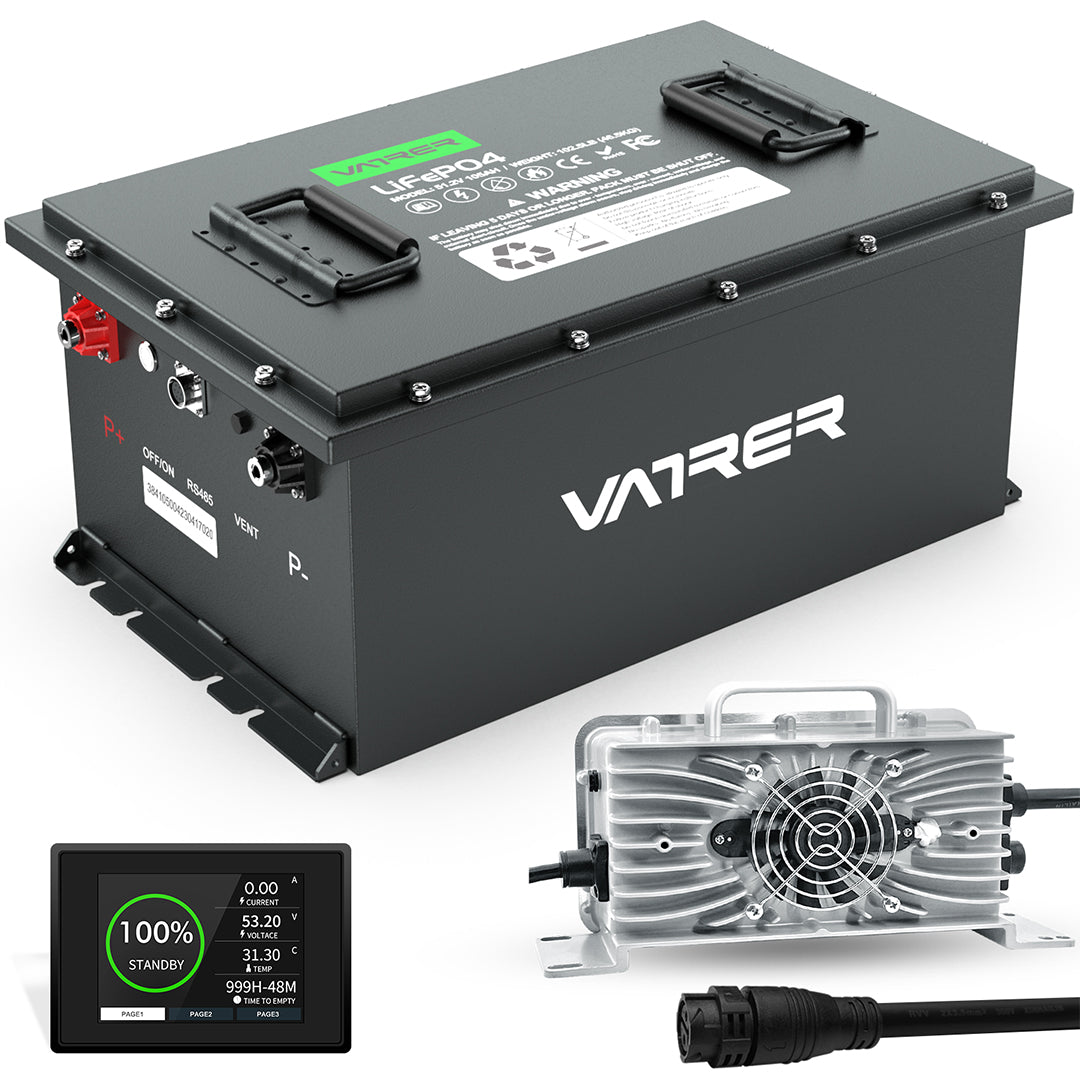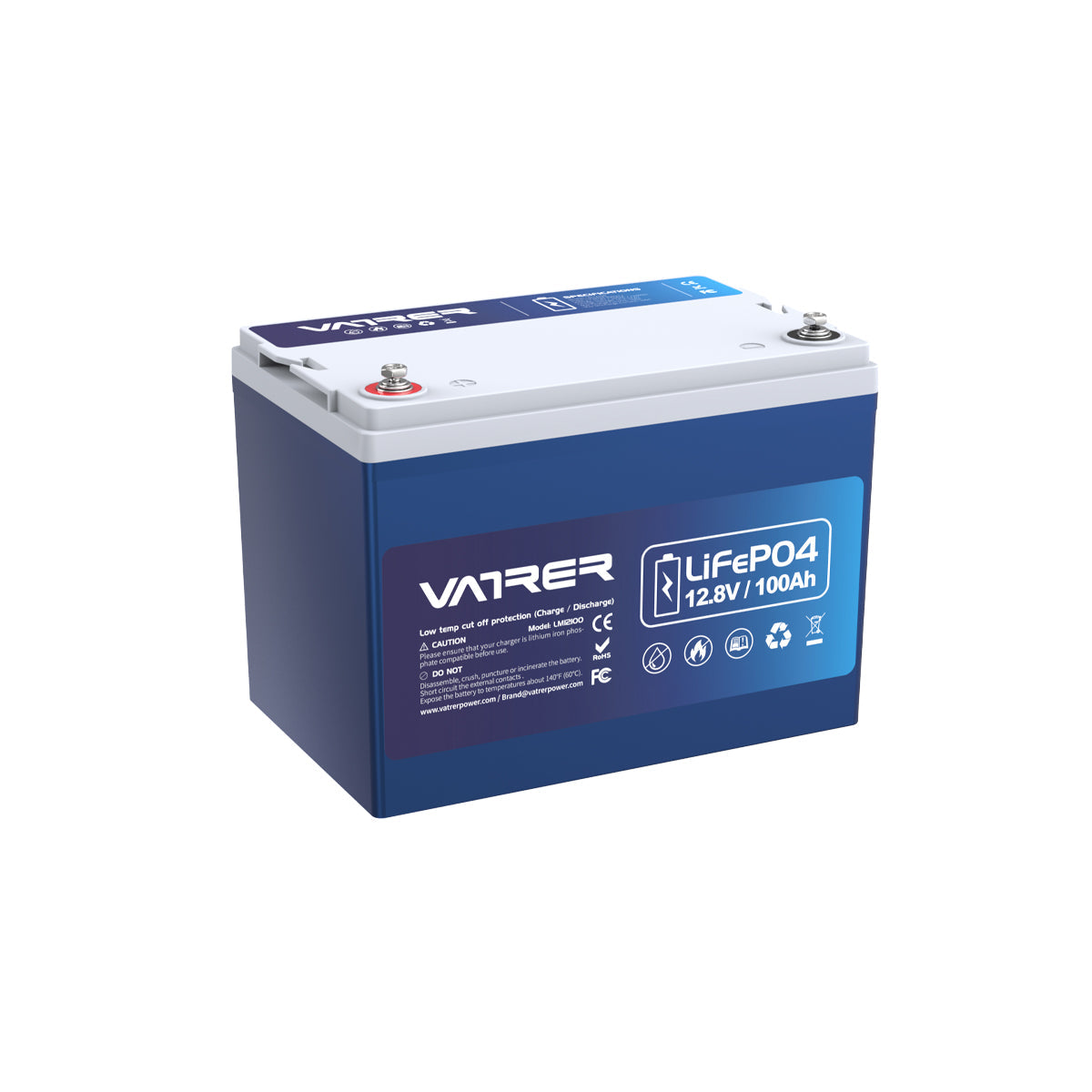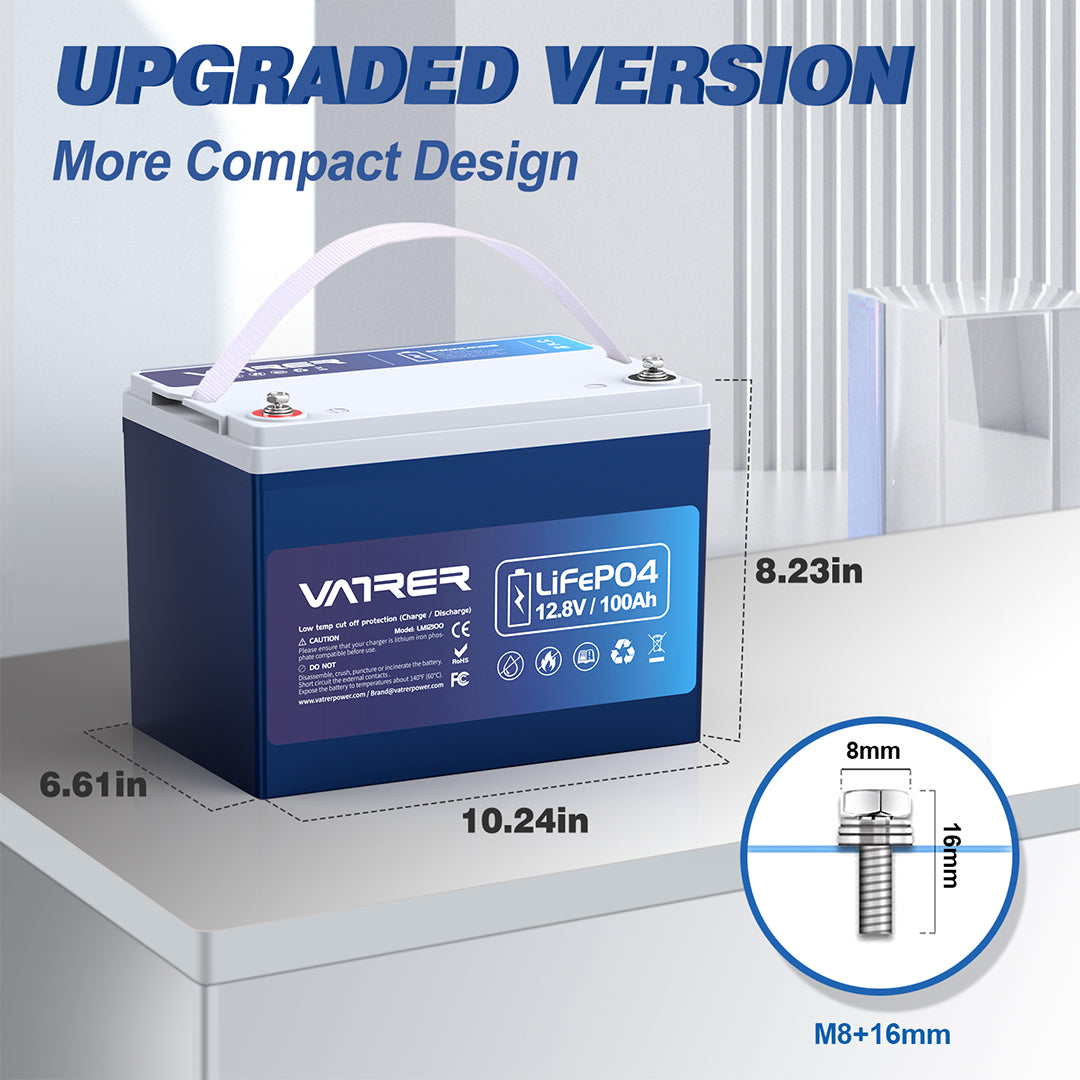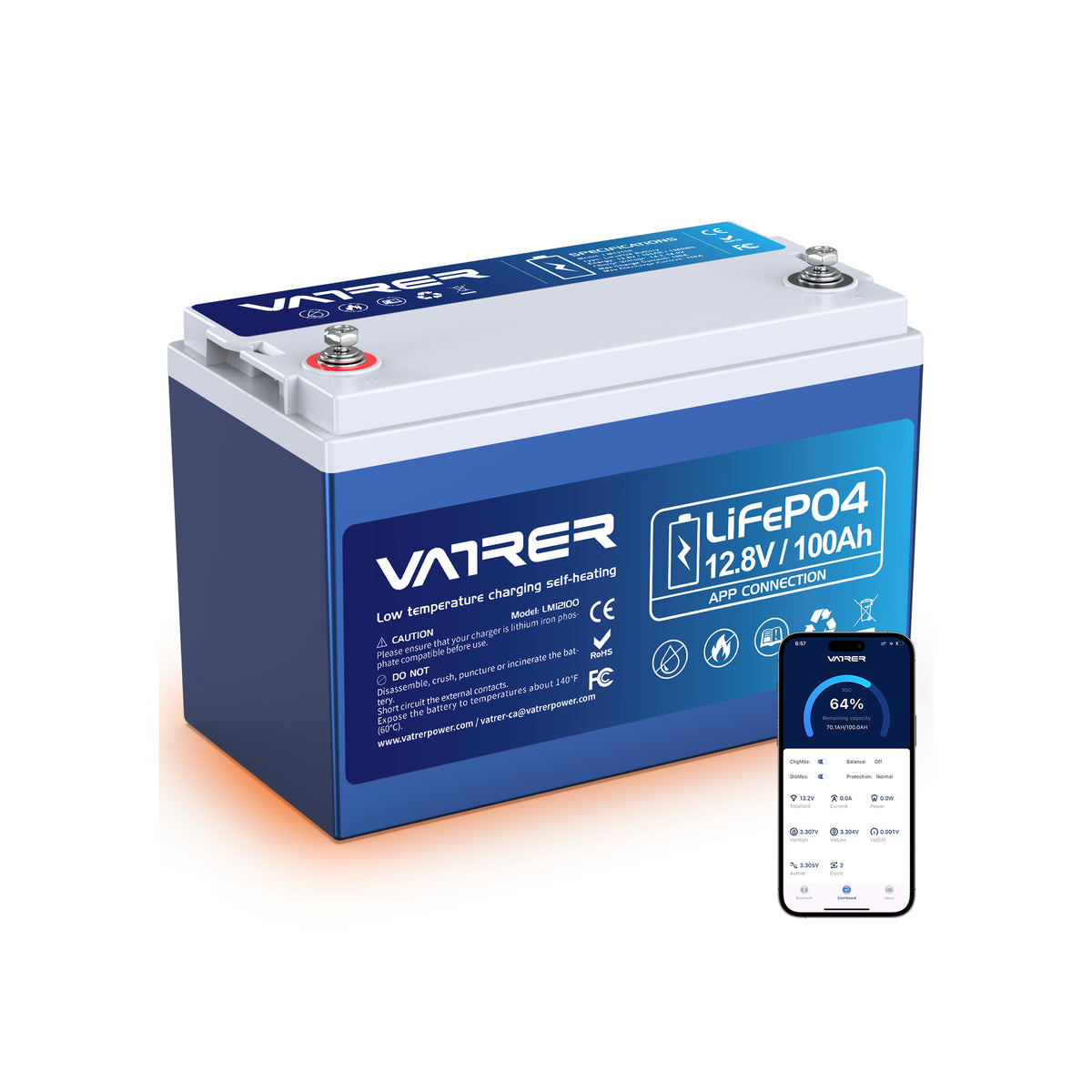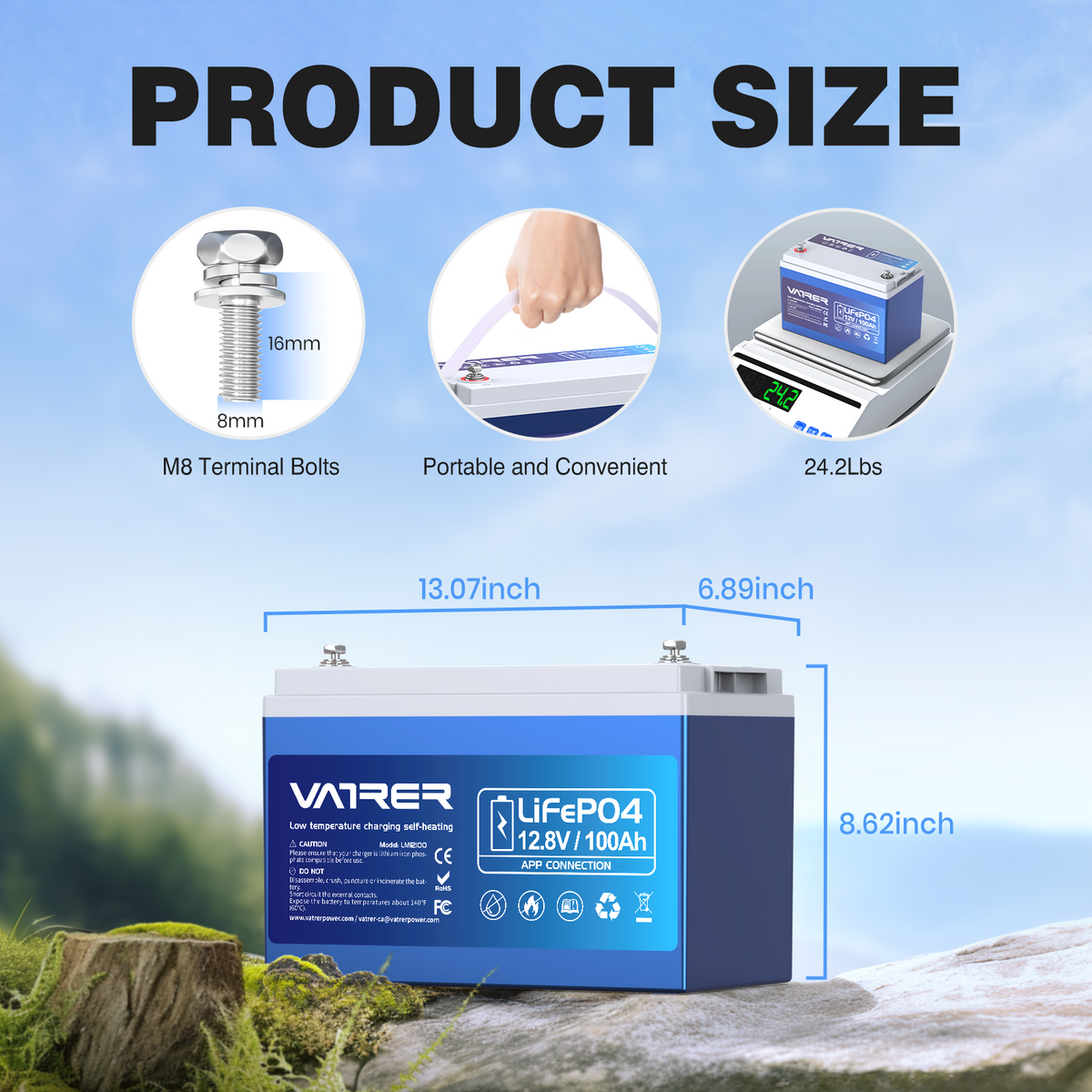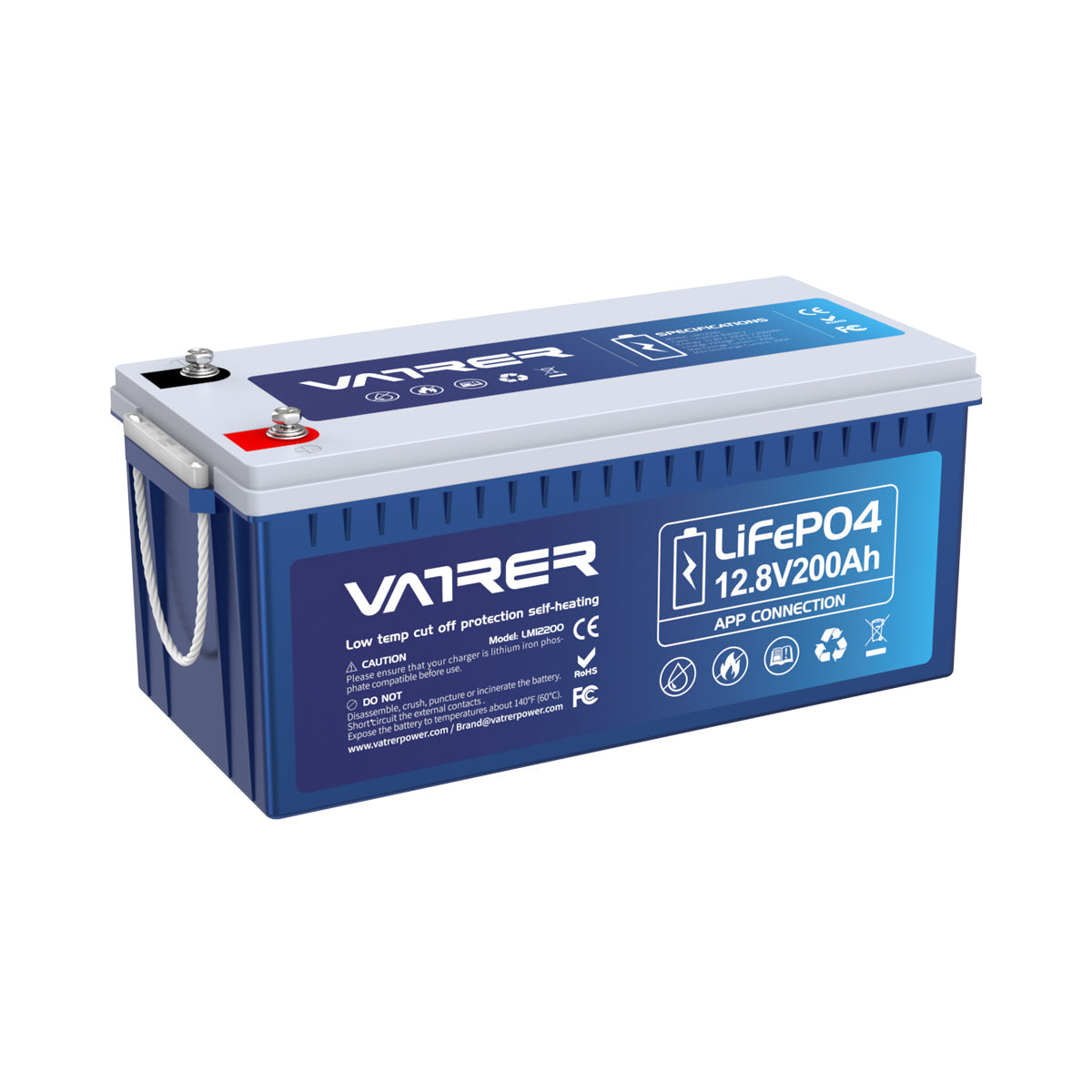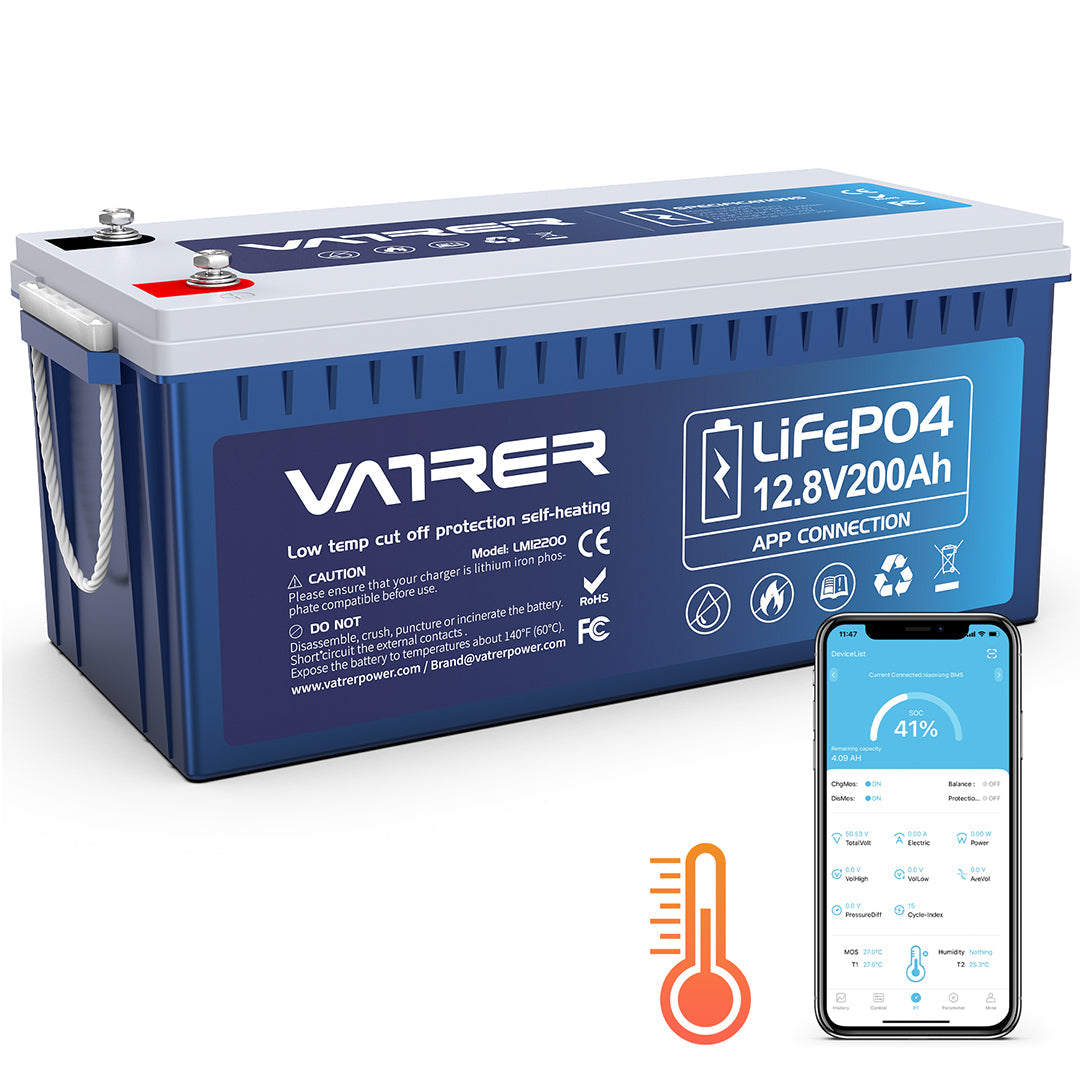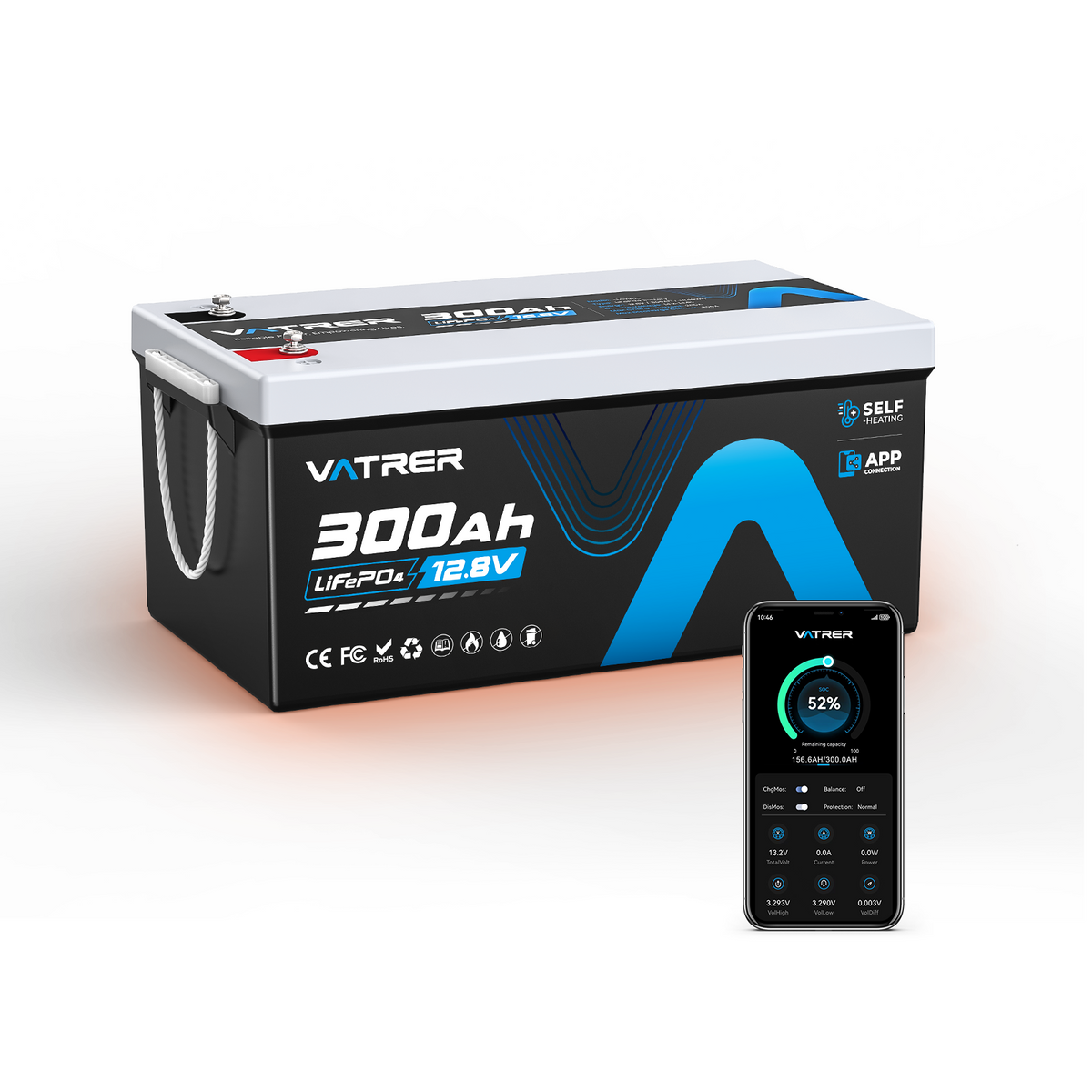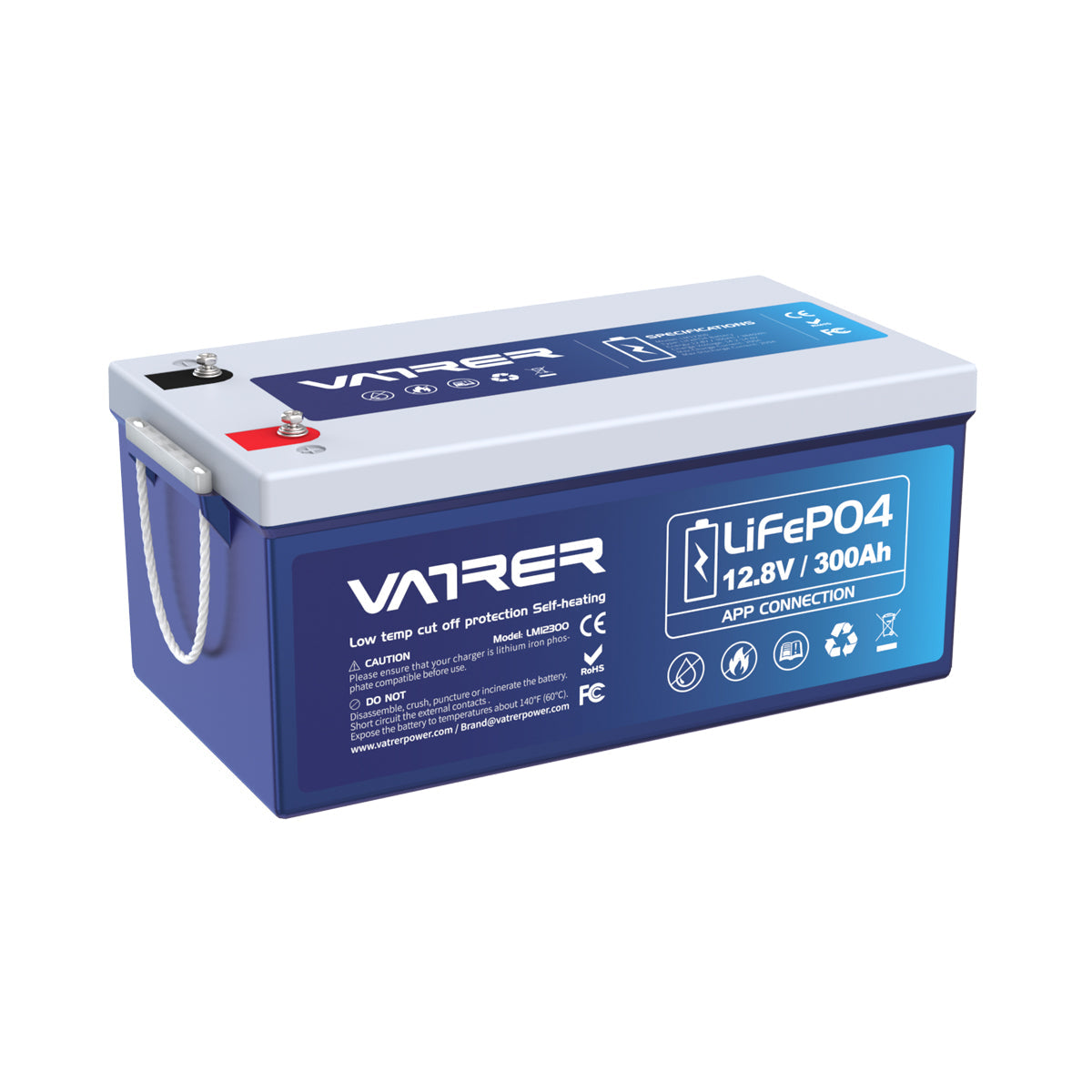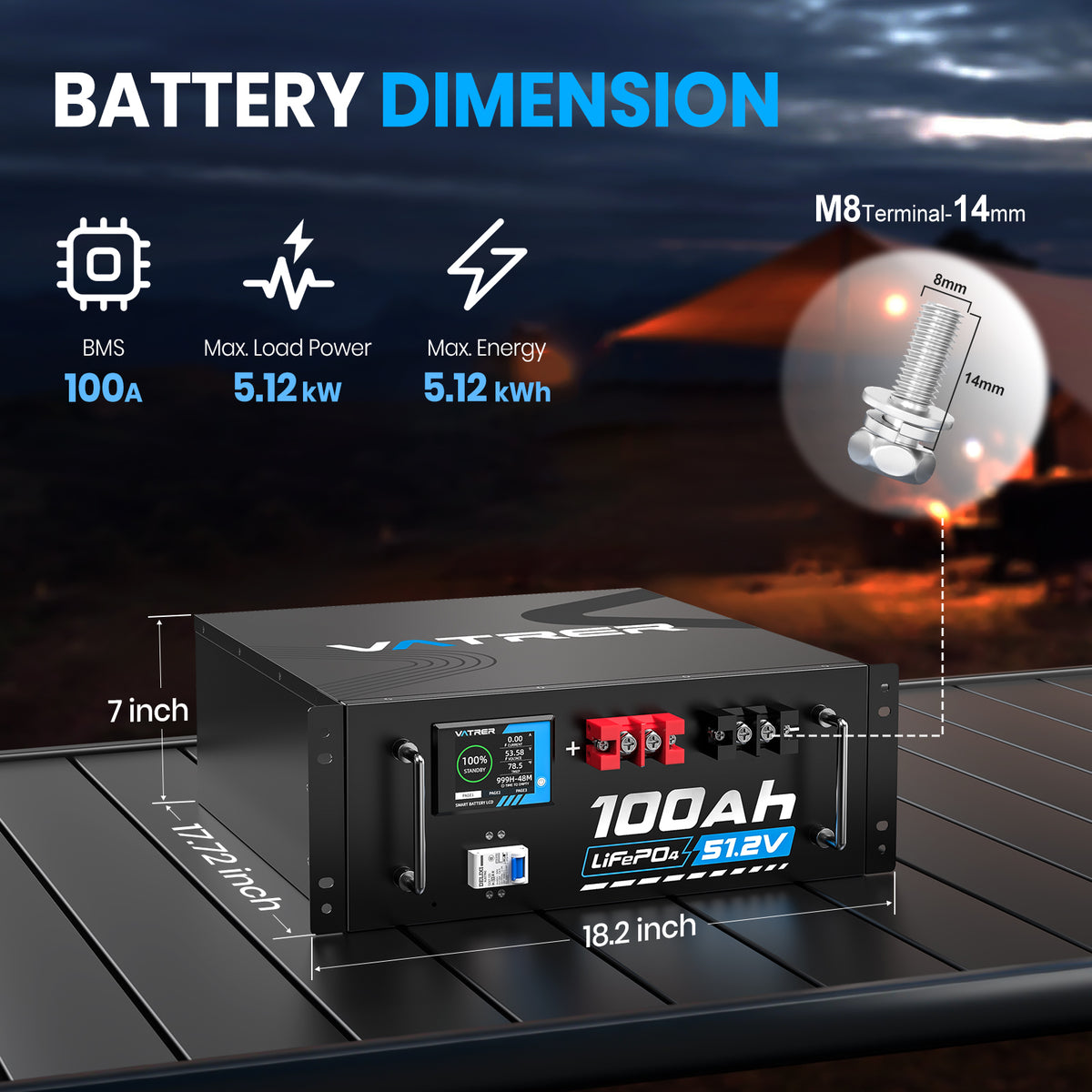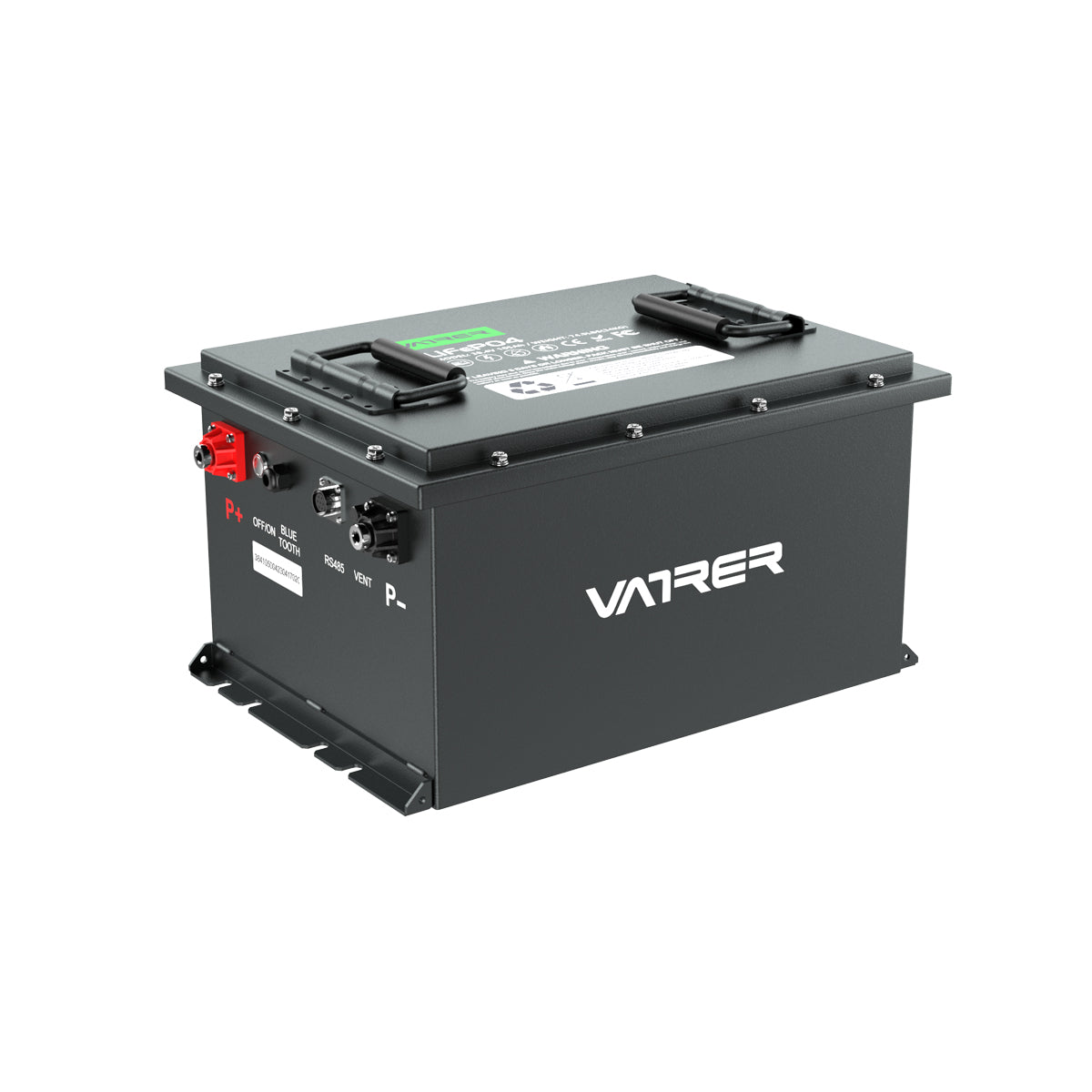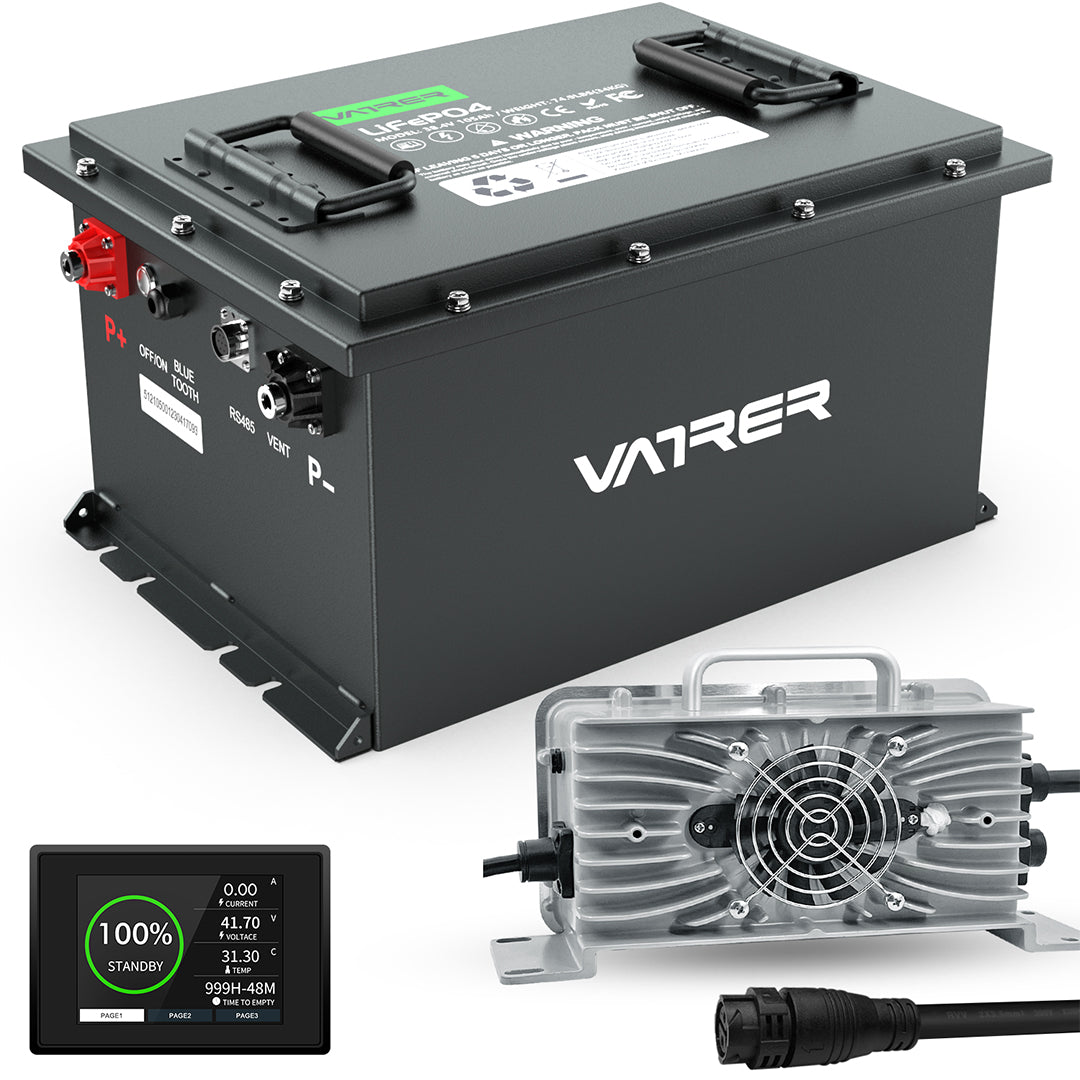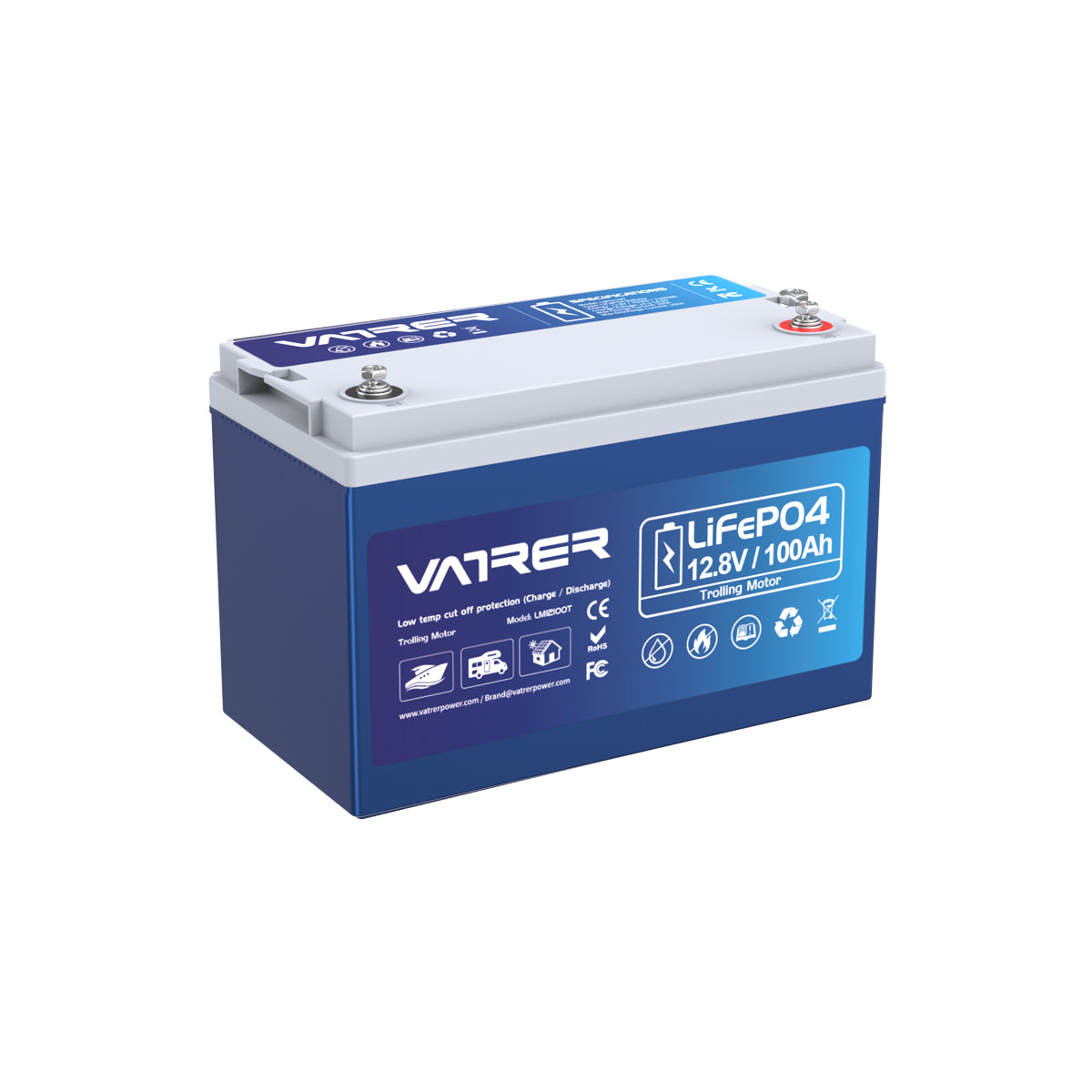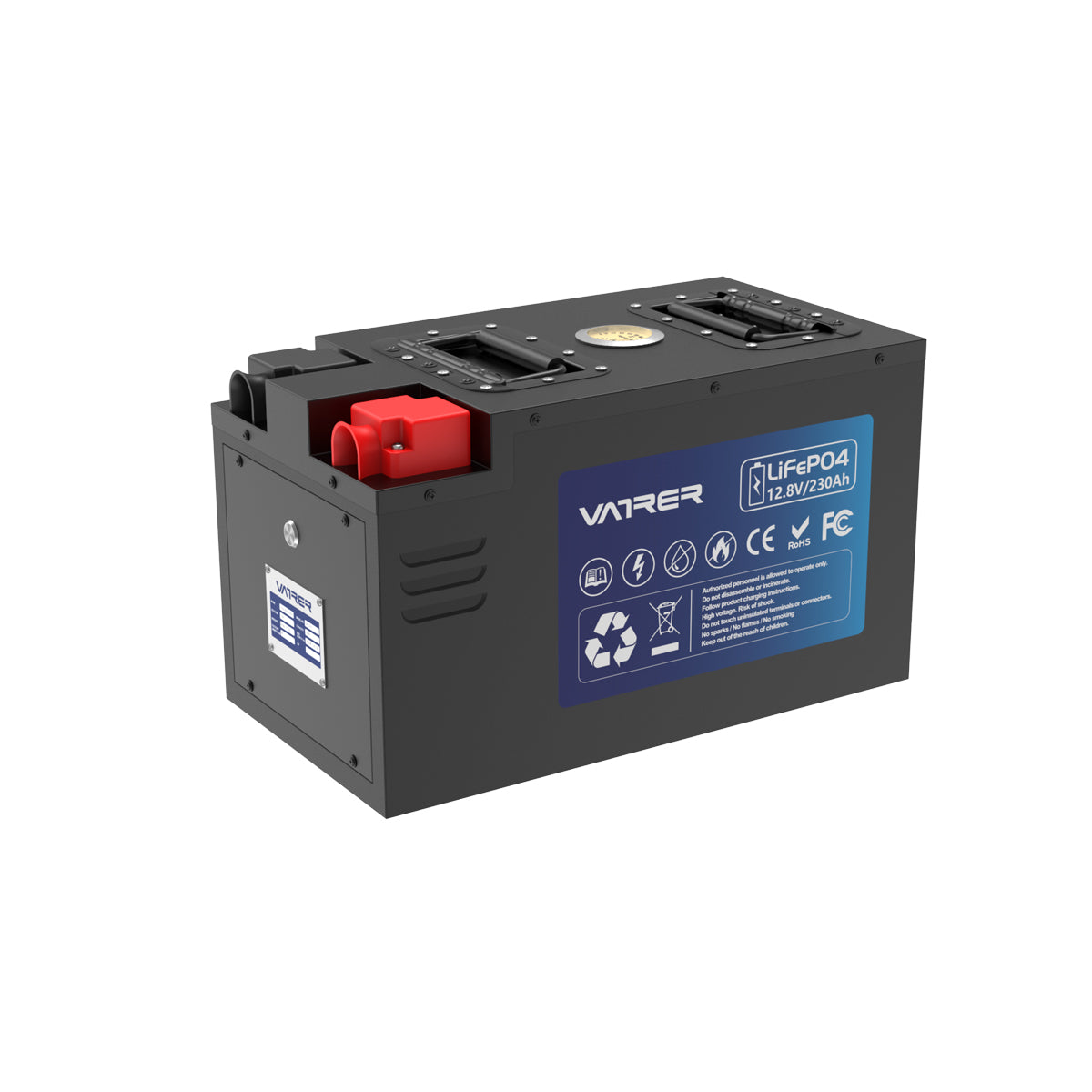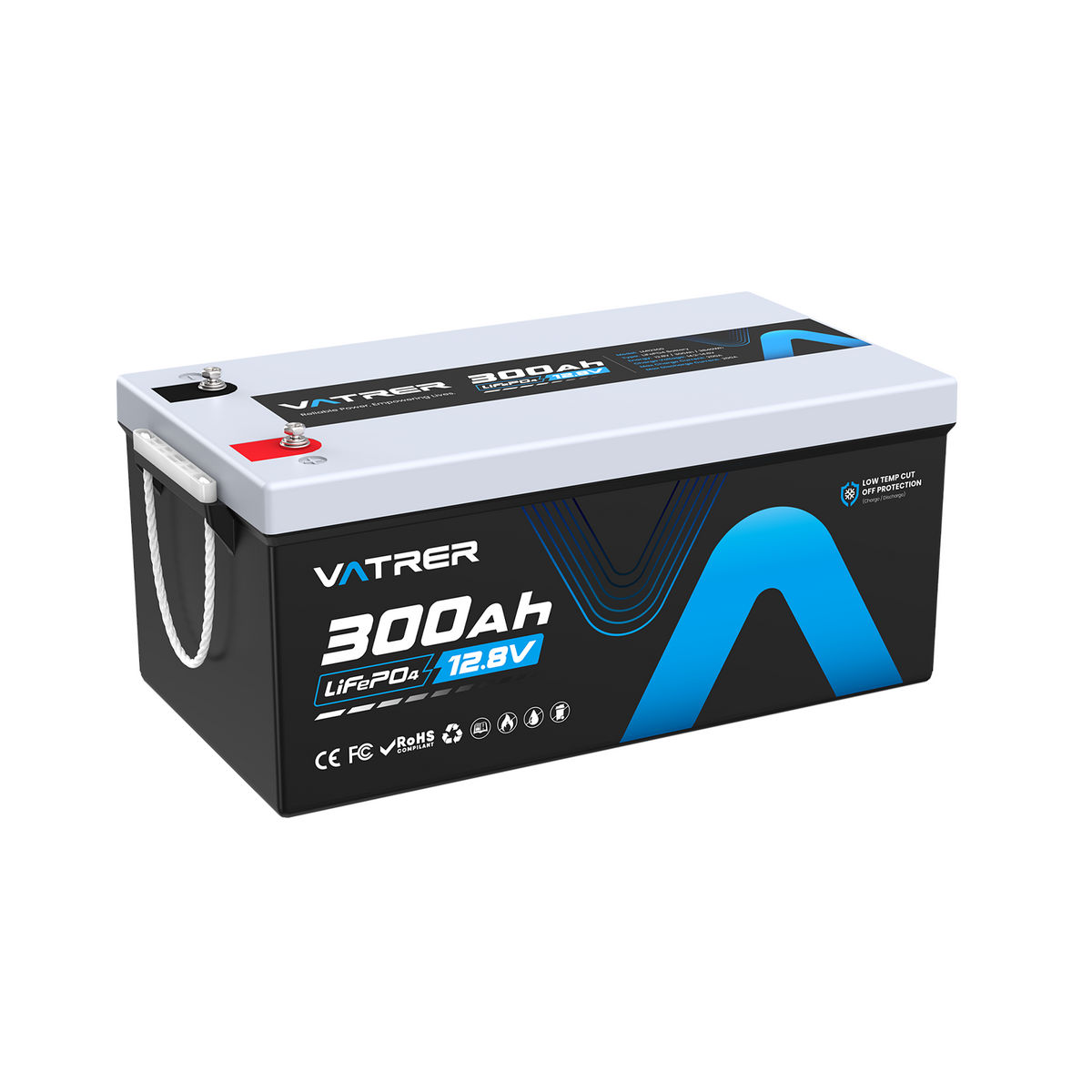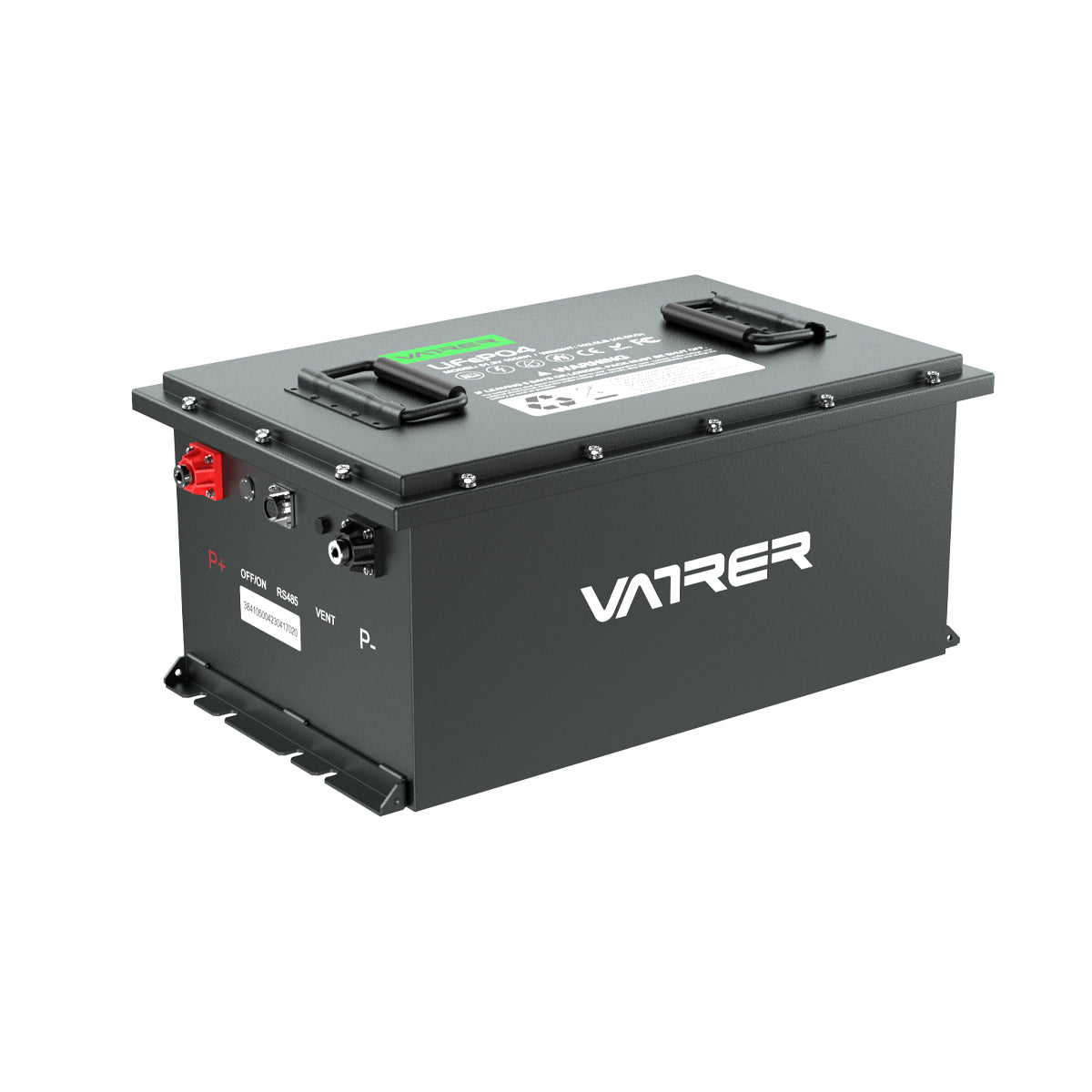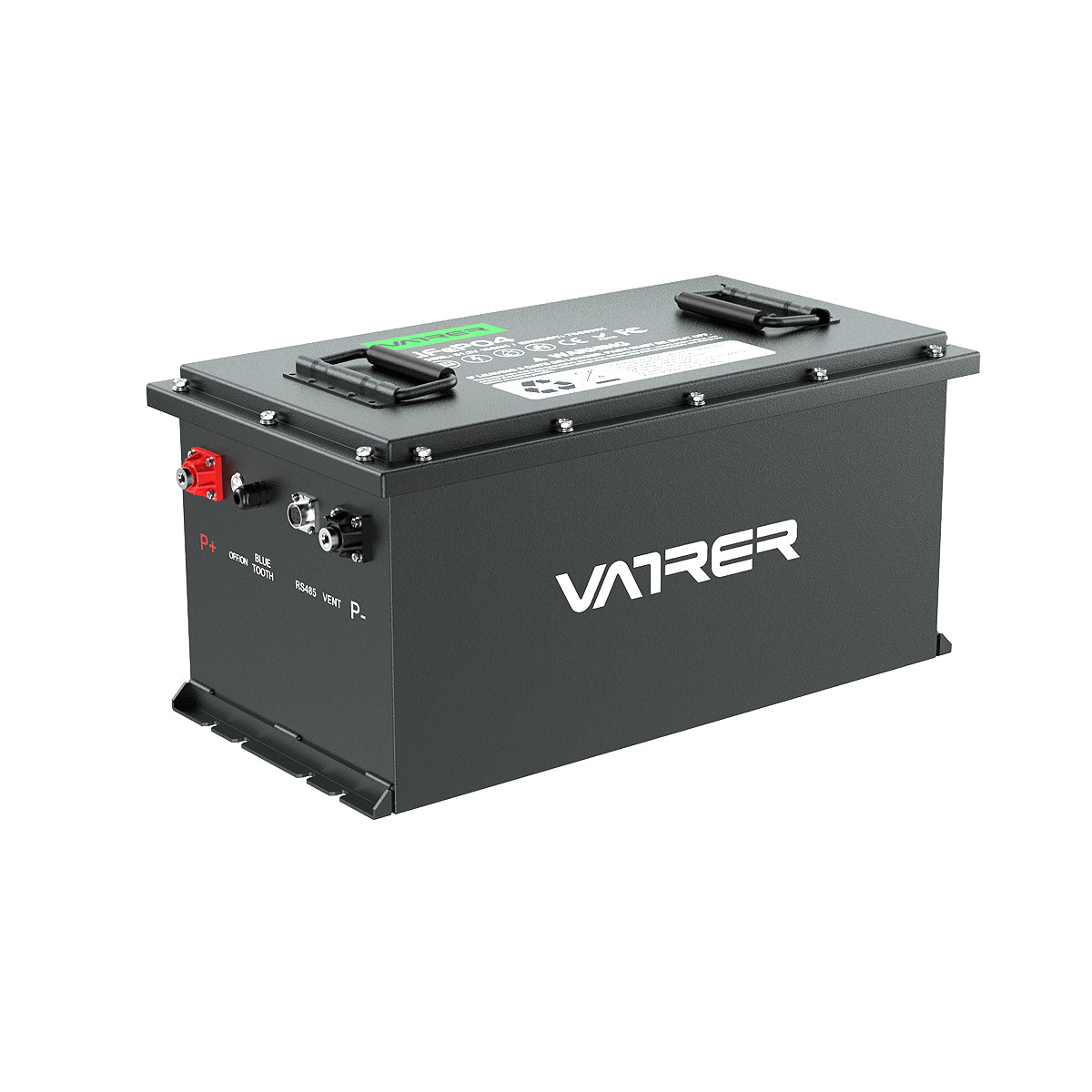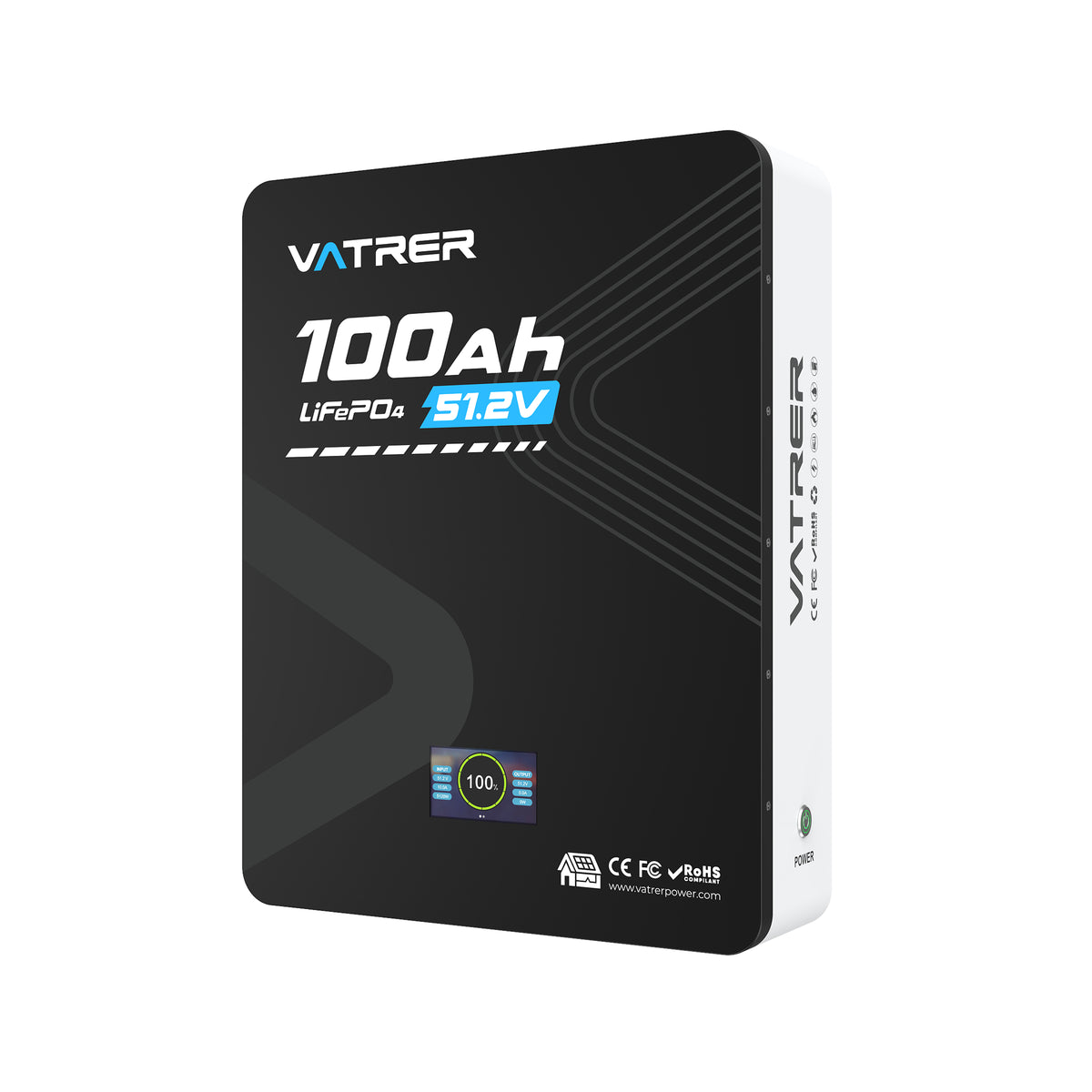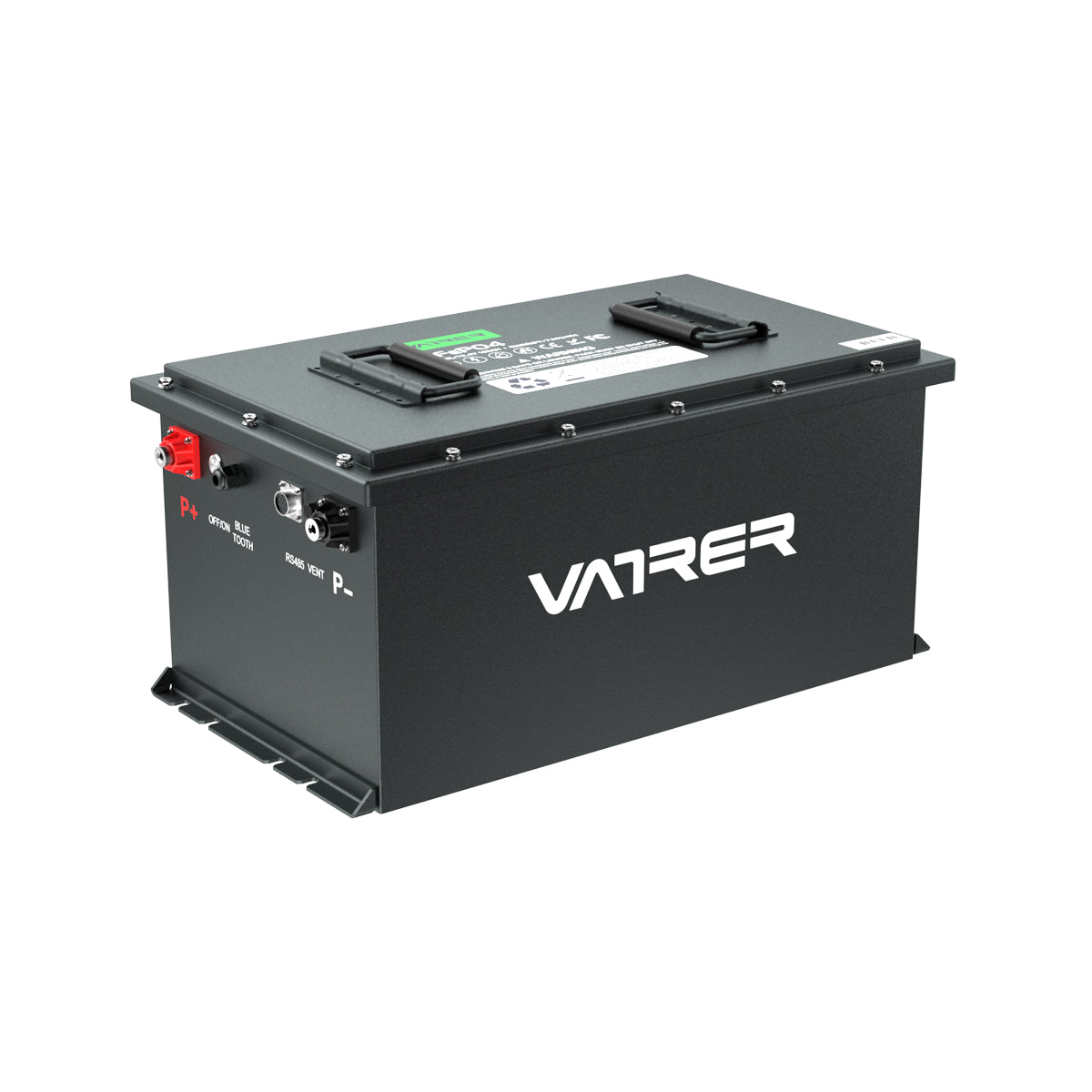Table of Contents
- Unraveling the Mystery of Solar Batteries
- Harnessing the Power: How Solar Batteries Function
- a. Photovoltaic Conversion
- b. Charge Controller
- c. Battery Storage
- d. Inverter
- e. Energy Management System
- Exploring the World of Solar Battery Types
- The Economical Aspect: Understanding Solar Battery Costs
- Selecting the Perfect Solar Battery: Key Considerations
- Selecting the Ideal Solar Battery for Your Requirements
- Benefits of Utilizing a Solar Battery
- Solar Battery Brands
- Grid-Tie vs. Off-Grid Solar Battery Systems: Understanding the Options
- Are Solar Batteries Worth It? Evaluating the Costs and Benefits
- Frequently Asked Questions (FAQs)
Whether you're new to solar power or have been utilizing solar panels for years, solar batteries can greatly enhance the efficiency and versatility of your solar system. Solar batteries store the excess energy produced by your solar panels, allowing you to use that stored energy during cloudy days or at night when the sun isn't shining.
In our comprehensive guide to solar batteries, we aim to address all your queries and help you select the most suitable solar battery for your facility or home. It's important to note that not all solar installation or sales companies offer solar batteries, so it's crucial to find a reputable provider that can fulfill your specific needs.

Unraveling the Mystery of Solar Batteries
Solar batteries are a crucial component in harnessing the full potential of solar power systems. Without a way to store the energy generated by solar panels, the efficiency of solar energy would be limited. Appliances would only function when the sun is shining and the panels are producing electricity. Moreover, any excess energy that is not utilized would go to waste, leaving you unable to tap into that energy during nighttime hours.
This is where solar batteries come into play. They serve as a storage solution for the energy generated by your solar panels, allowing you to use it when you need it most. By storing the excess energy in solar batteries, you can access electricity during periods when your panels are not actively producing, such as at night or during cloudy days. This ensures a continuous and reliable power supply, making your solar power system more efficient and versatile.
Solar batteries also offer an alternative or additional option to feeding excess energy back to the grid. Instead of selling the surplus energy to the utility company, you can store it in the batteries for your own consumption. This provides greater control over your energy usage and can help reduce reliance on the grid, potentially leading to a more independent and self-sustaining power system.
Furthermore, solar batteries can act as a backup power source during power outages. By having a charged solar battery system, you can keep essential appliances and devices running, offering a degree of resilience and immunity against disruptions in the grid. In fact, in certain cases, solar batteries can even enable you to detach from the grid entirely, allowing your house or facility to operate off-grid.
In summary, solar batteries are an essential component of a solar power system. They store the energy generated by your panels, ensuring a continuous power supply and offering greater energy independence. Whether as a backup power source during outages or as a means to reduce reliance on the grid, solar batteries play a vital role in maximizing the benefits of solar energy.

Harnessing the Power: How Solar Batteries Function
Solar batteries are the key to unlocking the full potential of solar energy. They work by capturing and storing the surplus electricity generated by solar panels during periods of ample sunlight. This stored energy can then be utilized when there is a demand for electricity, such as during nighttime or cloudy days.
The functioning of solar batteries involves several essential components and processes. Let's dive into the details:
a. Photovoltaic Conversion
Solar panels, composed of photovoltaic cells, convert sunlight into direct current (DC) electricity. These panels generate electricity when exposed to sunlight, producing an electrical current.
b. Charge Controller
The charge controller acts as a gatekeeper, regulating the flow of electricity between the solar panels and the battery. It ensures that the battery is charged safely and efficiently by preventing overcharging or deep discharging.
c. Battery Storage
Solar batteries, typically lithium-ion or lead-acid, store the excess electricity generated by the solar panels. This stored energy is available for use at times when the solar panels are not producing enough electricity to meet the demand.
d. Inverter
When the stored energy is needed, an inverter converts the direct current (DC) electricity stored in the battery into alternating current (AC) electricity, which is suitable for powering household appliances and devices.
e. Energy Management System
An energy management system monitors and controls the flow of electricity between the solar panels, battery, and electrical loads. It ensures efficient utilization of stored energy and optimizes the overall performance of the solar power system.
By incorporating solar batteries into a solar energy system, homeowners can maximize their use of renewable energy. During periods of abundant sunlight, excess electricity is stored in the battery for later use. This allows for a continuous supply of electricity, even when the sun is not shining, and enhances the overall reliability and efficiency of the solar power system.

Exploring the World of Solar Battery Types
Solar power enthusiasts have a variety of battery options to choose from when it comes to storing their precious solar energy. Let's delve into the four main types of batteries commonly used in the realm of solar power:
a. Lead-Acid Batteries
Lead-acid batteries have been around for quite some time and are widely used in automotive and industrial applications. They may not have the highest energy density, meaning they can't store as much energy per kilogram of weight, but they remain cost-effective and reliable. This makes them a popular choice for home solar setups. Lead-acid batteries come in both flooded and sealed varieties and can be further classified as shallow cycle or deep cycle based on their intended function and safe depth of discharge (DOD). Recent advancements have improved their lifespan, making them a viable option for many homeowners.
b. Lithium-Ion Batteries
Lithium-ion batteries are a more recent technological development and offer a higher energy density compared to other battery types. They are smaller, lighter, and more efficient, making them suitable for a wide range of applications, including laptops, phones, and residential solar systems. Lithium-ion batteries allow users to access more of the stored energy before needing a recharge. However, it's important to note that they come with a higher cost to the consumer. Improper installation can also pose a fire risk due to a phenomenon called thermal runaway.
c. Nickel-Cadmium Batteries
Nickel-cadmium batteries find more use in airline and industrial settings due to their durability and ability to function at extreme temperatures. They require relatively low maintenance compared to other battery types. However, it's important to be aware that cadmium, a toxic element, is present in these batteries. Proper disposal and handling are critical to prevent negative environmental impacts.
d. Flow Batteries
Flow batteries operate on the principles of chemical reactions, utilizing liquid-containing electrolytes that flow between two chambers within the battery. They offer high efficiency with a depth of discharge of 100%. However, flow batteries have a lower energy density, requiring larger tanks to store a significant amount of energy. This makes them more suitable for larger-scale applications rather than residential use. Their size and cost can be limiting factors for most households.
The Economical Aspect: Understanding Solar Battery Costs
When it comes to solar battery costs, several factors come into play, including the type and size of the battery system chosen. Let's explore the general cost considerations for different types of solar batteries:
a. Lead-Acid Batteries
Lead-acid batteries typically have a lower upfront cost compared to other types. The cost of a single lead-acid battery can range from $200 to $800 or more, depending on its size and power capacity. However, it's important to note that multiple lead-acid batteries may be required to fully power a household, which can add to the overall cost.
b. Lithium-Ion Batteries
While lithium-ion batteries may have a higher initial expense, they can provide long-term cost savings depending on how they are utilized. The average cost of a residential lithium-ion solar battery system, including installation, falls within the range of $7,000 to $14,000. These batteries offer higher energy density and efficiency, allowing homeowners to maximize their solar energy consumption and potentially reduce reliance on the grid, leading to long-term financial benefits.
Related reading: Cost of Solar Batteries in 2024: A Comprehensive Guide
c. Nickel-Cadmium and Flow Batteries
The prices of nickel-cadmium and flow batteries can vary significantly, depending on factors such as size and scale of the installation. However, it's important to note that these types of batteries are not commonly used in residential settings. They are typically found in commercial or industrial applications, where factors like durability, stability in extreme temperatures, and proper disposal upon replacement are crucial considerations.
It's essential to consider not only the upfront cost but also the long-term benefits and savings when evaluating solar battery options. Factors such as energy efficiency, lifespan, maintenance requirements, and warranty coverage should be taken into account. Consulting with solar energy professionals can help determine the most cost-effective and suitable solar battery solution based on your specific needs and budget.
Selecting the Perfect Solar Battery: Key Considerations
When it comes to choosing a solar battery, several crucial factors should be taken into account. Here are the key aspects to consider:
a. Type or Material
Different battery types have distinct advantages. Lithium-ion batteries offer compactness and longer lifespan, making them ideal for those seeking durability. Lead-acid batteries, on the other hand, are more budget-friendly. Assess your priorities to determine the right type for your needs.
b. Battery Life
The lifespan of a battery depends on various factors, including age, type, quality, and depth of discharge. Consult the manufacturer's specifications to gauge the expected longevity of a battery. Generally, lead-acid batteries can last from one to 10 years, while lithium-ion batteries typically offer a lifespan of seven to 15 years.
Related reading: How Long Do Solar Batteries Work?
c. Depth of Discharge
The depth of discharge refers to the amount of energy drained from a battery before recharging. Deeper discharge can shorten the battery's lifespan. Battery specifications often provide cycle life estimates and recommended maximum depth of discharge. It's important to note that both lead-acid and lithium-ion batteries may deteriorate faster when deeply discharged, but lead-acid batteries have a lower tolerance for deep discharges.
d. Efficiency
Solar systems and batteries have inherent energy losses during the transfer and storage of collected solar energy. Consider the efficiency of your system when selecting a battery. Investing in a more expensive, highly efficient battery could result in long-term cost savings. A competent sales and installation team can guide you on your solar panel efficiency and battery capacities, ensuring an optimized system.
Ultimately, choosing the perfect solar battery requires careful evaluation of your specific requirements and preferences. Seek guidance from industry professionals to ensure you make an informed decision that aligns with your energy needs and budget.
Selecting the Ideal Solar Battery for Your Requirements
When it comes to choosing the best solar battery for your setup, consider the following factors:
a. Use and Need Considerations
Determine whether you require the battery for short bursts of emergency power or to sustain the electrical needs of your entire household or facility for extended periods. Assess the amount of sun exposure you expect to have daily and consider the recommended depth of discharge for the batteries, as it impacts their lifespan.
b. Capacity
Selecting the appropriate solar battery capacity is crucial for a solar power system. The capacity, measured in kilowatt-hours (kWh), determines the amount of surplus energy your battery can store from the solar panels. This ensures a continuous power supply even during periods of limited sunlight.
c. Safety Considerations
Evaluate the storage requirements and necessary maintenance for the chosen battery. Ensure that the storage location can maintain the safe temperature range for the battery. Additionally, consider the disposal or recycling plan for the battery once it reaches the end of its life cycle.
d. Cost
Compare the upfront cost of lead-acid batteries with the efficiency and longevity of lithium-ion batteries. Determine the number of batteries needed to meet your energy requirements. Consider the expected lifespan of the battery and budget for its replacement when the time comes. Remember to factor in the total cost of solar panels and the battery system.
Related reading: Cost of Solar Batteries in 2024: A Comprehensive Guide
e. Warranty
Carefully review the warranty provided by the manufacturer. Look for solar batteries with extended warranties to ensure a reliable and worry-free investment. Consider a performance warranty that guarantees the battery will maintain a certain level of capacity or efficiency for a specified period. This adds an extra layer of assurance for optimal performance throughout the battery's lifespan.
By considering these factors, you can make an informed decision and select the best solar battery that aligns with your specific needs, budget, and long-term goals. Consulting with solar energy professionals can provide valuable insights and guidance to help you make the right choice.
Benefits of Utilizing a Solar Battery
The advantages of employing a solar battery for storing your excess energy are indeed plentiful. Allow me to elaborate on the key benefits:
a. Energy Independence
A solar battery is an indispensable component for those seeking complete reliance on solar power. It enables you to store the surplus energy generated during the day, making it available for use during the night or when sunlight is limited. This self-sufficiency grants you the freedom to power your home without solely depending on the grid.
b. Electric Bill Savings
By harnessing the power of the sun through solar panels and storing the energy in a battery, you can significantly reduce your reliance on grid electricity. As a result, you purchase less power from your local utility company, leading to notable savings on your electric bill. The more energy you generate and store, the greater your potential for financial benefits.
c. Environmental Impact
Opting for solar battery storage contributes to the reduction of carbon emissions and the preservation of our environment. By utilizing solar energy, which is clean and renewable, you minimize your use of fossil fuels and promote sustainability. Furthermore, solar batteries allow you to power various devices, such as laptops or phones, with solar-generated energy, further decreasing your carbon footprint.
e. Backup Power
Solar batteries offer a reliable source of backup power during times of outages or emergencies. By storing energy beforehand, you can ensure that essential appliances and systems remain operational, providing you with peace of mind and comfort when the grid fails. This becomes particularly valuable in regions prone to frequent power disruptions.
Related reading: Exploring the Power of Solar Battery Backup
Solar Battery Brands
Two prominent players in the industry are Generac PWRcell Solar Battery and Tesla Powerwall. Generac's PWRcell series is known for its versatility and ability to complement solar panel installations, while Tesla's Powerwall offers a sleek and compact design with an integrated inverter for seamless integration.
In addition to these well-known brands, there is another emerging player in the solar battery market, Vatrer Power. While I am not intimately familiar with their offerings, it is always wise to conduct thorough research and gather information about their products, specifications, and customer reviews to assess their reliability and performance.
When considering Vatrer Power or any other brand, be sure to evaluate factors such as battery capacity, efficiency, warranty, compatibility with solar panels, and customer support. Consulting with professionals and seeking recommendations from those who have experience with Vatrer Power can also provide valuable insights.
Grid-Tie vs. Off-Grid Solar Battery Systems: Understanding the Options
The choice between a grid-tie and off-grid solar battery system, a decision that requires careful consideration. Let me shed some light on these two options.
A grid-tie solar battery system is a popular choice for those residing in urban or suburban areas with access to the utility grid. With this system, homeowners can harness solar energy while still having the ability to draw electricity from the grid during times of low solar production. The surplus energy generated by the solar panels can be sent back to the grid, allowing homeowners to earn credits or receive compensation through net metering. This setup offers cost savings, reduced reliance on grid electricity, and the opportunity to participate in renewable energy incentives.
On the other hand, an off-grid solar battery system is ideal for those who seek energy independence and self-sufficiency. This system operates independently from the utility grid, providing power even in remote areas where grid access is limited or nonexistent. Excess energy produced by the solar panels is stored in batteries for use during times of low solar production. However, it is important to manage energy consumption carefully, as there is no grid to rely on during extended periods of low sunlight. To ensure a continuous power supply in such situations, backup power sources like solar batteries may be necessary.
Are Solar Batteries Worth It? Evaluating the Costs and Benefits
Solar batteries do indeed require a significant upfront financial investment. However, they can provide several benefits that make them worthwhile for many homeowners. Let us consider some key points:
a. Energy Cost Savings
Solar batteries allow you to store excess energy generated by your solar panels, which can be used during times when solar production is low, such as at night or during cloudy days. This reduces your reliance on grid electricity and can lead to significant energy cost savings over time.
b. Energy Independence
Solar batteries provide you with a degree of energy independence, allowing you to rely less on the grid and potentially even go off-grid if desired. This can be particularly advantageous in areas with unreliable grid power or during emergencies when the grid may be disrupted.
c. Environmental Benefits
By storing and utilizing the energy generated by your solar panels, solar batteries help reduce the need for fossil fuel-based electricity. This contributes to a cleaner and greener environment, promoting sustainability and reducing carbon emissions.
d. Incentives and Rebates
In certain areas, there may be incentives or rebates available to help offset the costs of installing a solar battery system. For example, the federal solar tax credit can provide up to 30% off the installation cost, further enhancing the financial viability of solar batteries.
Frequently Asked Questions (FAQs)
1. How long do solar batteries last?
The lifespan of solar batteries can vary depending on various factors such as the brand, usage patterns, and maintenance. Generally, solar batteries are designed to last anywhere from 5 to 15 years. It's important to note that battery capacity may decrease over time, requiring replacement or refurbishment.
2. What are the disadvantages of using solar batteries?
While solar batteries offer numerous benefits, it's essential to consider the potential disadvantages. These can include the initial high cost of installation, limited storage capacity compared to electricity consumption, and the need for regular maintenance and monitoring. Additionally, depending on the type of battery chemistry used, there may be environmental concerns regarding disposal and recycling.
3. How many batteries does it take to power a house with solar?
The number of batteries required to power a house with solar depends on various factors, including the size of the house, energy consumption, and the storage capacity of the batteries. To determine the specific number of batteries needed, it is best to consult with a solar energy professional who can assess your energy requirements and provide customized recommendations.
4. How long do solar batteries hold a charge?
The length of time a solar battery can hold a charge depends on the battery's capacity and the amount of energy being consumed. Generally, solar batteries can hold a charge for several hours to a few days, allowing for continuous power supply during periods of low solar production or during emergencies. It's important to select a battery with sufficient capacity to meet your energy needs during desired periods of backup power.
5. What solar batteries are the best?
The best solar battery for you will depend on several factors, including your specific energy requirements, budget, and preferences. There are various reputable brands available, such as Generac PWRcell, Tesla Powerwall, and Vatrer Power, each with their own unique features and benefits. It's advisable to research and compare different brands, considering factors such as battery capacity, efficiency, warranty, compatibility with solar panels, and customer reviews, to determine the best solar battery for your needs.

![[Buying Guide] Should I Buy Lithium Batteries on Black Friday?](http://www.vatrerpower.com/cdn/shop/articles/Should-I-Buy-Lithium-Batteries-on-Black-Friday.webp?v=1731467571&width=500)
